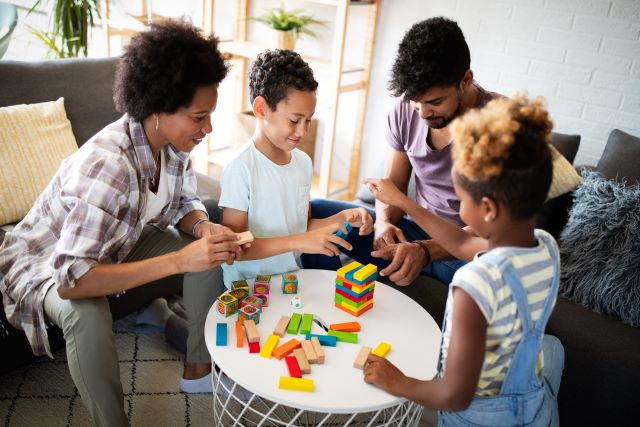Parenting is hard. And to help navigate the waters, psychologist Diana Baumrind created the original three parenting styles for parents to add some different tools to their parenting toolboxes. Well, fast-forward from the 60’s to present day, and we find that there are a dozens of parenting styles out there for parents to embrace. Well, we are adding a new one to the fold, “attachment parenting”. According to a new study, this style may just be the key to ensuring kids become emotionally secure adults.

Before we continue, let’s first take a look at exactly what “attachment parenting” is. Per WebMD, attachment parenting focuses on the nurturing connection that parents can develop with their children. That nurturing connection is viewed as the ideal way to raise secure, independent, and empathetic children. Proponents of this parenting philosophy include the well-known pediatrician William Sears, MD. They make the case that a secure, trusting attachment to parents during childhood forms the basis for secure relationships and independence as adults.
Now that we have now defined, “attachment parenting,” let’s look at the new research study and see if this is a style that you want to adopt.

A resent research study, published by the American Psychological Association, analyzed the behavior and relationships of the more than 22,000 parents and children. The researchers were able to confirm that when parents demonstrate more sensitivity to their children’s needs, their child is more likely to develop secure attachment.
This secure attachment yields a myriad of benefits for the children such as: increased academic performance, learning, empathy, emotional regulation, well-being, etc.
So, just how do you, as a parent, put this into type of parenting style into action. Well, below are four ways that the experts suggest you try.

Be present and attentive by noticing when your child needs attention.
True, working a 9-5, coming home to clean, cook dinner, take care of multiple children, etc. etc. is often overwhelming for parents. However, make sure to carve out some time when your child needs you to be present. If they are seeking that you need to tune-in to them, then it is important to give them that time.
Being sensitive and fostering trust and security.
“Sensitive behaviors show children that they can rely on their parent in moments of need and trust them to help, which fosters secure attachment,” the researchers said in the study report. By doing this you are, whether you know it or not, passing on a sense of empathy to your child that will last a lifetime.
Respecting children’s pace and letting them take the lead.
Trust your child to take the lead and let them tell you what they need. In other words, you are just a passenger, helping them guide the ship.
“For example, a small child might want to stop and inspect every rock or flower on a short walk, which might seem slow or dull to a parent, but is a fascinating adventure to a small child whose brain is rapidly developing,” researchers state.
Being kind to yourself.
Children and young people are great at imitation. If they see you being kind to yourself, they will follow suit. And of course the contrary is true as well.
“Caregivers can sometimes experience pressure to be the ‘perfect parent.’ However, it can sometimes be difficult to respond sensitively when we are feeling stressed or pulled in all directions,” the researchers said. “So, while we aim for consistency in our caregiving responses, it’s also important to be kind to ourselves and understand that we are human too.”







